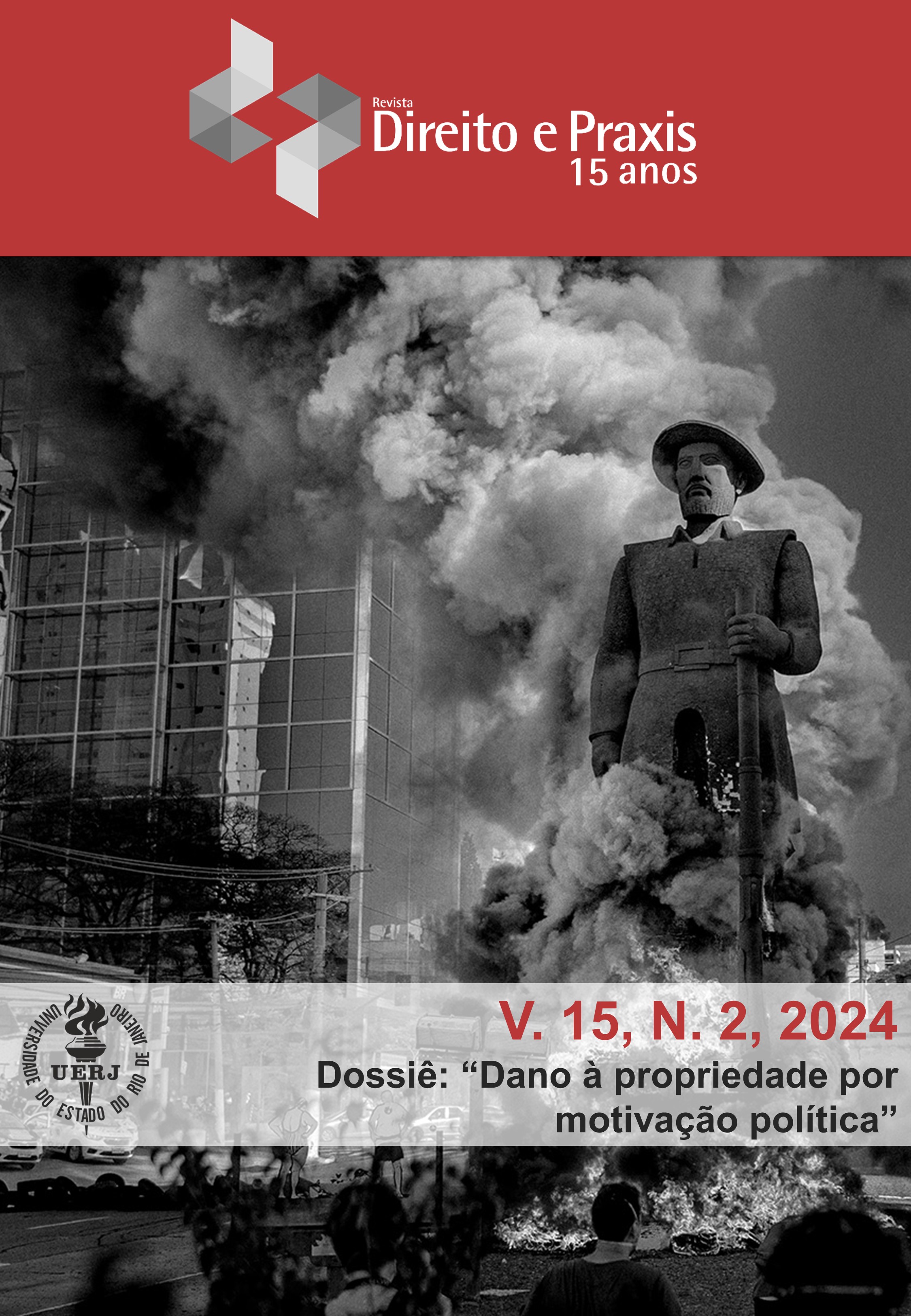From Protests, Public Shaming, and Occupations to the Agrarian Court
Property Rights in Land Conflicts in Alagoas
Keywords:
Agrarian court, Property rights, Legal mobilization, Landless movementAbstract
https://doi.org/10.1590/2179-8966/2024/82373
This article aims to analyze the disputes surrounding the categorization of property rights in Alagoas, focusing on agrarian conflicts adjudicated in the state's agrarian court. Established in 2009, the agrarian court of Alagoas is exclusively dedicated to the conciliation and adjudication of agrarian conflicts in the state. In this court, it is common for the actions of landless movements to be framed as threats and damages to property and property rights in repossession lawsuits filed by landowners. On the other hand, landless social movements have increasingly sought to assert their own perspectives on property rights and land use, particularly using the argument of the social function of property. To conduct the study, we will utilize legal mobilization theory to investigate the structure of legal opportunities and available resources, along with elements of framing processes. Legal mobilization theory helps us understand the relationship between social movements, law, and the judiciary. The article is based on the analysis of 241 judicial cases processed in the agrarian court between 2009 and 2014, as well as interviews with judges and members of landless social movements in Alagoas. The research encompassed the actions of three main judges. The main hypothesis of the article is that the agrarian court becomes a space of tension where different framings clash in their attempt to influence judicial decisions, while judicial decisions simultaneously impact the dynamics of agrarian conflicts in Alagoas and the social movements' own understanding of property. Additionally, we hypothesize the consolidation of a dispute over legal arguments regarding possession and property on one side, and the right to protest and the social function of property on the other. For their arguments to be legally considered, social movements need to translate their street mobilization framings into legal framings, which is done through the categories of the social function of property. These framings challenge the boundaries of property rights by justifying in legal language what is initially framed as damage or violence.
Downloads
Downloads
Published
How to Cite
Issue
Section
License
Copyright (c) 2024 Ana Carolina de Castro, Weldja Marques da Silva Lima (Autor/a)

This work is licensed under a Creative Commons Attribution 4.0 International License.
The authors the sole responsibility for their texts.
It is allowed the total or partial reproduction of the articles of the Journal Law and Praxis, if the author is mentioned.
This work is licensed under a Creative Commons Attribution-Noncommercial-Share Alike 4.0 Unported License.
This license allows you to copy and redistribute the material in any medium or format for any purpose, even commercial, provided the original authorship is cited.
This work is licensed under a Creative Commons Attribution 4.0 International License.



